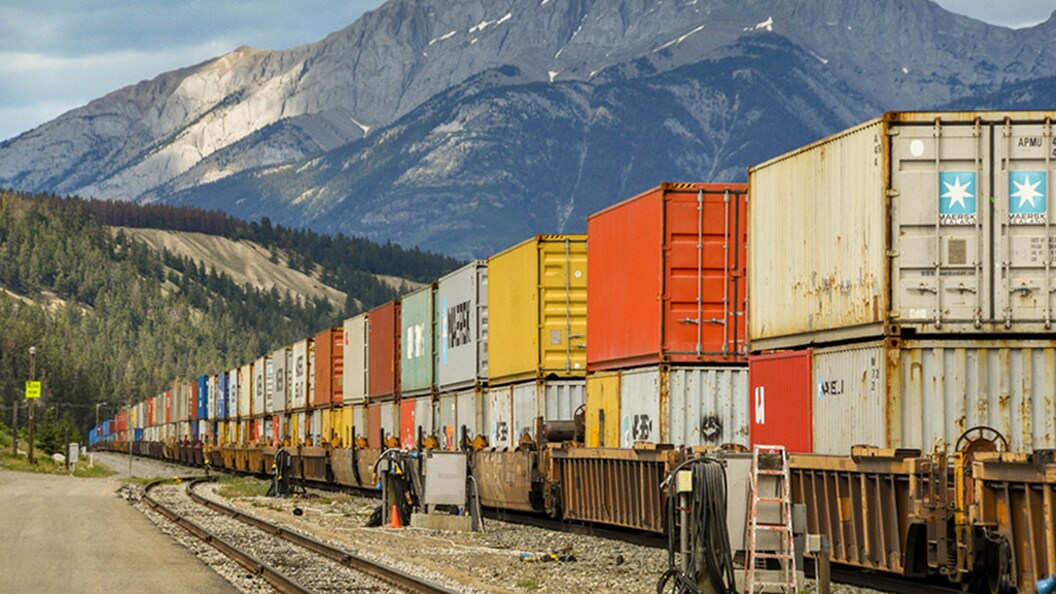How our block train solution helped a digital imaging giant keep its schedule on track.
The background
Complexities are part and parcel of almost any logistics setup. If even one part of the system is thrown slightly off track, it can lead to numerous complications in the rest of the journey. This is where an integrated approach to your supply chain becomes critical. It can help better connect and optimise the different elements in your network and provide greater visibility, flexibility and end-to-end control. When our customer, a global leader in imaging technology, was facing significant disruptions in their international operations earlier this year, an integrated logistics setup was key in helping find an effective solution.

The customer
Our customer is one of the foremost brands in imaging and printer technology. Headquartered in Tokyo, the company specialises in optical, imaging and industrial products such as lenses, printers, cameras and semiconductor manufacturing equipment. Its Vietnam division was established in April 2001 and began operations in May 2002. Since then, the company has been one of Maersk’s biggest key clients in the region for ocean container transportation, mostly to Europe, the United States (US) and Latin America.

The challenge
Earlier this year, the pandemic’s resurgence affected several countries and companies in the Asia-Pacific region. Covid-19 restrictions had already led to congestions in China, and several manufacturing hubs in the vicinity faced significant operational disruptions. In Vietnam, supply chains were seeing equipment shortages and a lack of space for exports. That left the customer’s unit in the country unable to secure availability with any ocean carrier. Several key consignments to Europe and the Americas were hanging in the balance, leading to potential delays and added costs.


The solution
As one of the biggest carriers for the company’s Vietnam division, Maersk has always played an active role in understanding their needs and providing solutions to overcome any supply chain issues. Our focus on integrated logistics had already delivered results for the company earlier on the ‘Round Use Container’ project.
This initiative promoted the more effective utilisation of empty containers between exports and imports by the customer and its suppliers through Haiphong, which helped cut costs and improve overall operational efficiency. When the pandemic first hit in March 2020, we were able to diversify our offerings and provide additional services like warehousing, inland transportation and air freight solutions out of Vietnam.
When it came to transporting the most recent consignment of printers, we were again able to go the extra mile, this time with our intercontinental rail service. Our local team was able to provide a block train solution comprising twenty-three 40-foot containers, which helped connect the customer’s manufacturing hub in Asia to their destination market in Europe.
With the help of Maersk’s intermodal transport facilities, the cargo was transported from Vietnam to Liege in Belgium, and then forwarded to Rotterdam in the Netherlands via our inland trucking service.

The result
By implementing the block train solution, we successfully helped the customer ship their entire consignment, despite the unavailability of containers or spots in our Ocean service. Even with current congestions, the intercontinental rail is expected to complete the journey to Europe around 5 to 7 days faster than by sea and provides a more cost-effective solution than air freight. In a time of uncertainty, with some services being hampered by the pandemic, this type of flexibility becomes more important than ever to ensure your supply chain continues to operate without interruptions.
无论您需要什么,我们都可以随时为您提供帮助
I agree to receive logistics related news and marketing updates by email, phone, messaging services (e.g. WhatsApp) and other digital platforms, including but not limited to social media (e.g., LinkedIn) from A. P. Moller-Maersk and its affiliated companies (see latest company overview). I understand that I can opt out of such Maersk communications at any time by clicking the unsubscribe link. To see how we use your personal data, please read our Privacy Notification.
By completing this form, you confirm that you agree to the use of your personal data by Maersk as described in our Privacy Notification.
